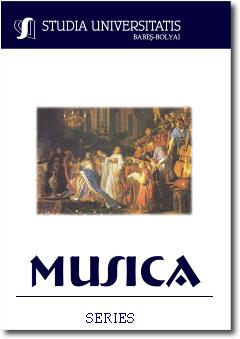DÉBATS SUR LA « ROUMANITÉ » MUSICALE
DEBATES ON MUSICAL "ROMANIANNESS"
Author(s): Luana StanSubject(s): Music
Published by: Studia Universitatis Babes-Bolyai
Keywords: Identity; nationalism; romanity; folklore; contemporary music; communism; serialism; Romania; Europe; Enesco; Brăiloiu; Stravinsky; Bartók.
Summary/Abstract: The musical «romanity» is a very exciting semiologic case. Is it a reality or just an empty musical label? In this study, we present three historical and cultural stages which constitute the musical «romanity»: between the wars (WWI – WWII), during the communist period, and after the revolution of 1989. Firstly, in the 1920’s, an important musicological movement marked the appearance of the periodical Muzica of Bucharest; the two main personalities of the Romanian music, musicologist Constantin Brailoiu and composer Georges Enesco, wrote a lot of essays to defend this «romanity». Secondly, during the communist period (1944-1989), the emphasis on the «new folklore» was an official recommendation of the State to strengthen a «national specificity» of communist vision. Thirdly, after the collapse of the dictatorial regime, the «romanity» questions strongly reappeared, but, this time, they were accompanied by some negative nuances and identity frustration. To define a national «romanity» in the context of international opening (e.g. European Union) seems to be an anachronistic phenomenon, but it is finally the normal reaction of identity protection in front of the disappearance of specificities and the appearance of standardization.
Journal: Studia Universitatis Babes-Bolyai - Musica
- Issue Year: 59/2014
- Issue No: 1
- Page Range: 81-108
- Page Count: 28
- Language: French

